So you’ve committed to Anne Lamott’s daily writing practice (as discussed in our previous podcast), good for you. Now let’s find out how to turn those embarrassing word scribbles into profound and meaningful insights. In this episode we start with the Bird by Bird chapters, “School Lunches” and “Polaroids,” which, trust us, are about that transformative process. Then it’s onto the “Character” chapter and we talk about giving the people in your novel their own emotional acre.
Also in the podcast, we interview three authors, Delta Jones, Richard Risemberg, and MJ Brunnabend on how they draft their novels.
Want to hear more of our exercise workshop? We post the bonus podcast, SnarkNotes, and detailed write up of the exercises on our Words to Write by Patreon account. Want to meet some fellow writers? Attend our free Process Group on Meetup. If you like what we do, don’t be shy! You can leave us a tip to help us break even on our newly purchased sound equipment. Or you can even leave us an Apple review!
This Episode's Interviews
So how shitty is a Shitty First Draft? In our previous episode, we got to thinking: what is the truth behind the “shitty first draft,” the writing process strategy that fuels the world acclaimed phenomenon, Nanowrimo? Is this truly the end all be all universal writing strategy for authors? And that whole writing every day thing…fact or fiction? We decided to ask some published, working authors how they work and what drafting looks like. Enjoy!

Delta James
Delta James is the author of the paranormal romance series, Mystic River Shifters, and nearly a hundred other supernatural/suspense romances. You can explore her many series on her website.

Richard Risemberg
Richard Risemberg has published several novels, a collection of non-fiction essays, and a long list of short stories and flash fiction. You can find his mystery The Dust Will Answer here.

M.J. Brunnabend
M.J. Brunnabend is a screenwriter and author of several science fiction and commercial fiction novels. You can find his latest novel, Transistor Radio, and other works on his website.
School Lunches
WTF does a bologna sandwich, chocolate milk, and celery with peanut butter have to do with the process of writing? A lot, surprisingly. What we have here is not a mediocre excuse for a lunch at all, but a brown paper Bag of Holding filled with nutritious advice on how to show, don’t tell, narrow down your subjects, and find your characters through the process of writing prompted “short assignments.”
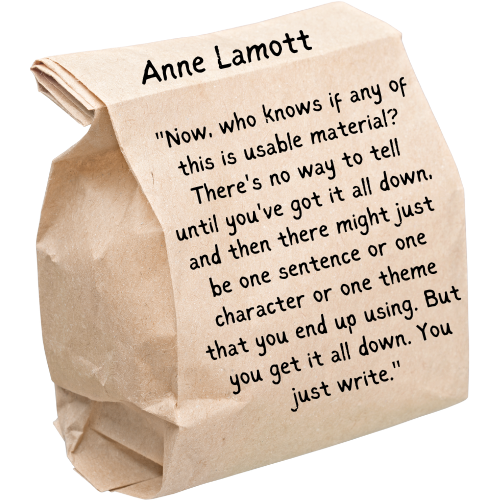
One notable tasty bit: her callback to the one inch picture frame we discussed in our last episode. It serves not just as a small mental step toward a seemingly insurmountable task, but a way to narrow down our creative subject. The “one inch picture frame” helps us pick and choose what details to show, what to focus on, what to know what’s important to invest in…what deserves to be displayed within a frame on a shelf.
Polaroids
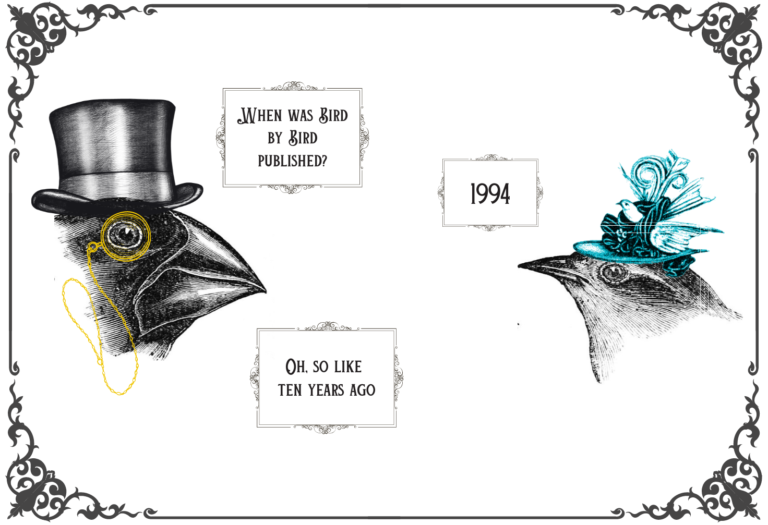
Do you remember the delight of a Polaroid? The click and whirr of the camera ejecting the white framed plastic picture as if sticking out its tongue. Waving the film back and forth. The anticipation from watching the cloudy chemical reaction reveal the image from the picture you took just moments ago. Ahhhh, memories… The novelty was in the not knowing, the anticipation of the slow reveal, the lack of instant gratification (although oddly enough the Polaroid was a form of instant gratification since it negated the need for a dark room).
PSA: Unless you’re at least in your mid-thirties (or a hipster), Bird by Bird may include some unfamiliar references, like Polaroid film. In this chapter, Lamott metaphor just emphasizes how YOU CAN’T KNOW what your subject is going to be until you write at least a picture frame’s worth of a school lunch at a time. You can try to predict your story, your characters, or what you’ll really focus on in your article about the Special Olympics, but no ruff, no diamond. Dem’s the apples.
"The evidence is in, and you are the verdict."
Speaking of metaphors, in the aptly named chapter, “Character,” we discovered “the character’s emotional acre.” Lamott says “each of your characters has an emotional acre that they tend, or don’t tend, in certain specific ways.” In this sense, bad things will happen to your character, but how they tend their acre reveals a lot about who they truly are. Ask yourself: what have you planted (or not planted) in your own emotional acre?
Externals Vs Internals
Creating a dynamic character seems akin to online dating. Sure, they may look good online. No creeper vibes on chat. Algorithms even peg you as a 97% match. But, eventually, a real life in-person date is necessary for obvious reasons (catfishing, anyone?). Even if they make it to a second date, you need to get to know your character beyond the honeymoon phase. They’ll be on their best behavior until, eventually, they let their guard down and you see the flaws they tried so hard to hide.
But, Lamott says, it’s these faults in a character that readers like. Sideways, anyone?
In this episode, we touch on Nabokov’s Lolita and work through Unreliable Narrators. That discussion is available for on our Bonus Episode on Patreon.
Continuing the (Process) Conversation
So how do we create dynamic fictional characters with complicated, yet relatable emotional landscapes? Lamott suggests buying the character a few drinks and seeing how they describe an event to a close friend. Other writers use exhaustive character questionnaires, from which you can answer various questions like “what’s in your character’s refrigerator?”
On the episode, we discuss character development and how Lamott finds her characters from writing “Short Assignments” and within “Picture Frames,” after which she advises us to pull from ourselves and people we know. But what does it mean to give a character an emotional acre? What gives a truly likeable narrator dimension?
"In their wholeness, the protagonist becomes more whole."
Jason Reynolds, young adult and middle grade author of Long Way Down, Ghost and As Brave As You, and winner of many awards, such as the Schneider Family Book Award, the NCAAP Image Award, gave an interview to his young, poignant readers from the Fairfax Country Public School System. When discussing how he develops teenage characters for his books, Reynold’s says it’s important to view one’s characters as “whole people. “

If it’s flaws that make the character likeable, I’d say Jason Reynold’s goes a step further to say that readers enjoy learning from characters. “I’ve never met a teenager who has had a hard life that was so hard that he or she did not laugh ever. I’ve never met a young person who did not find humor in hardship. There’s so much to learn from that.” By watching them till their own acres, we learn to till our own.
It’s important to note he writes teenage characters. People who traditionally aren’t taken seriously in the moment. Instead of asking his characters: “who do you want to be when you grow up;” he asks: “who do you want to be right now. Better yet, who are you today?” These questions add dimension to characters. These questions, also, respect the characters as well.
To hear more of his thoughts on character, you can watch this short segment from his interview for the Fairfax Public School System below. You can also hear more about character development from his interview at the University of Wisconsin – School of Education.
Tribute: Vladimir Nabokov

In this episode, we discuss the Unreliable Narrator through the pedophile narrator Humbert Humbert in Lolita, probably Nabokov’s most famous work (which is number four on Modern Library’s 100 best 20th Century Novels). Vladimir Nabokov (1899 – 1977), was born in Russia and emigrated to Berlin. After becoming an American citizen in 1945, he worked as a professor of Russian literature at Cornell University. His other notable works include his memoir, Speak, Memory, and Pale Fire (number fifty three on the Modern Library’s list).
To hear more on our discussion about the Unreliable Narrator and Lolita on our bonus podcast, join us on Patreon.


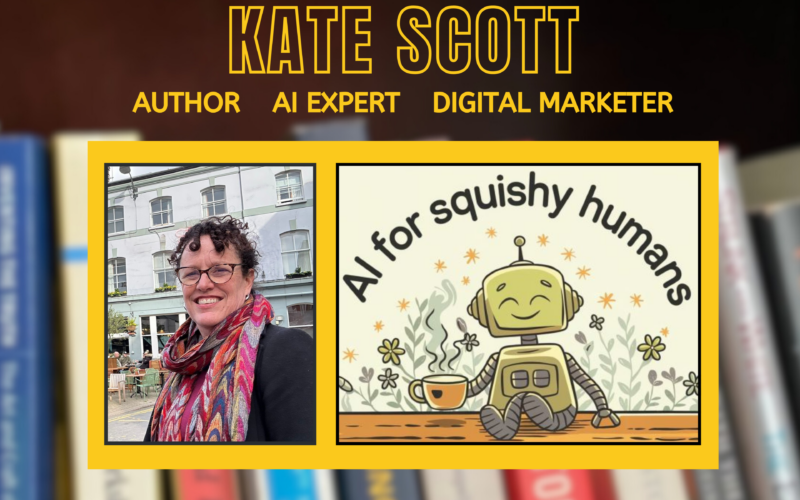

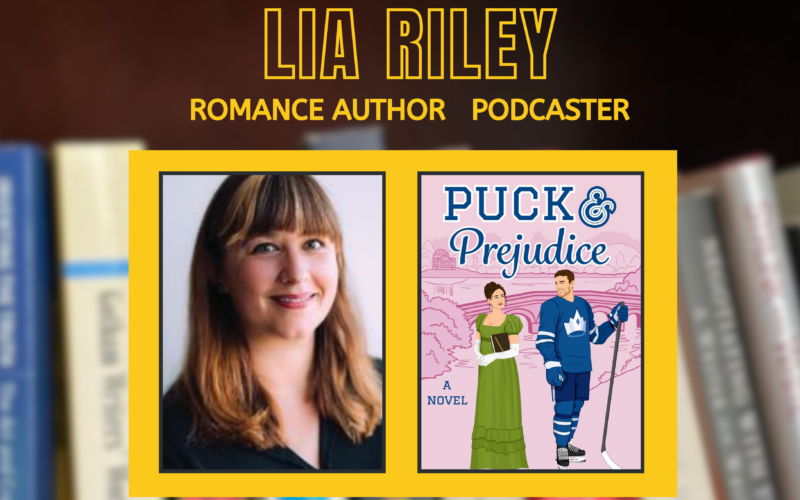
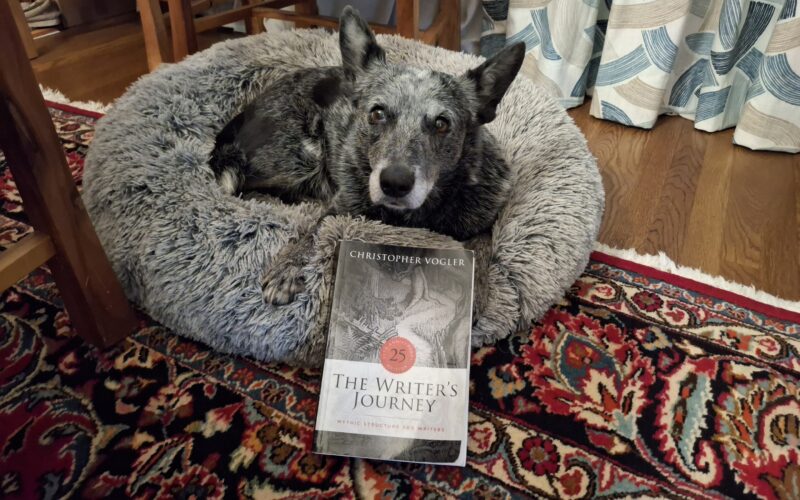
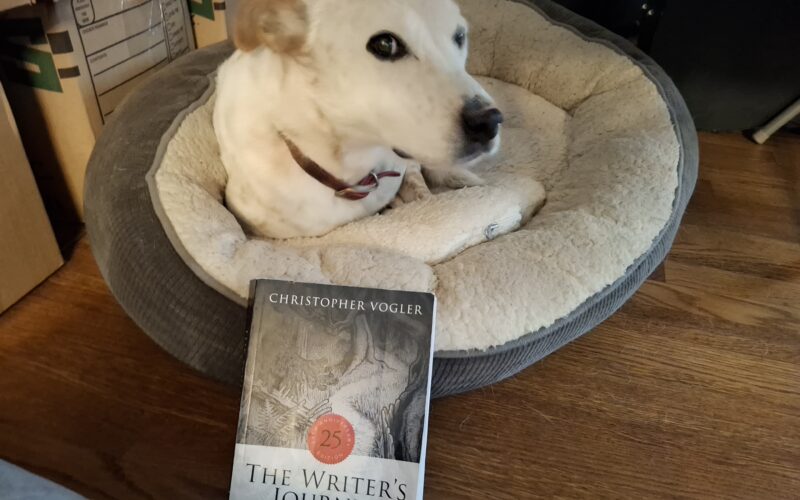
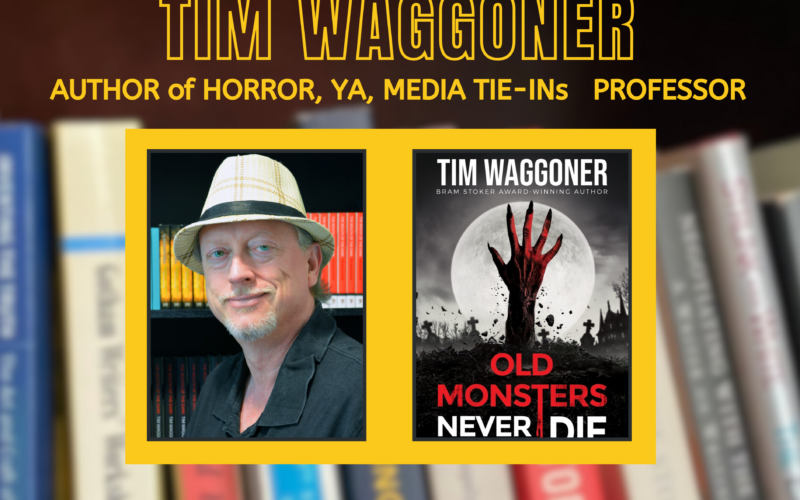

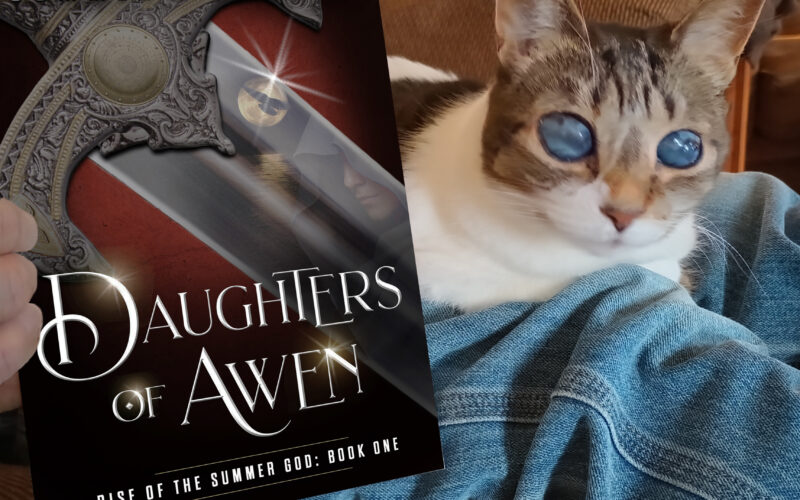

What’s Really Happening When AI Writes? An Interview with Bill Moore
We've been putting AI chatbots through creative writing challenges, but what are these systems actually doing when they write? In this episode, we bring in AI expert Bill Moore. Bill...